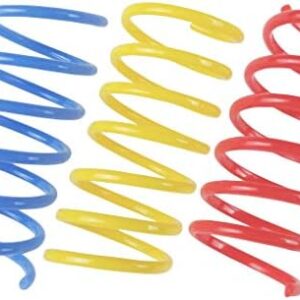
If you’ve recently had your cat undergo surgery, you may notice that they’re acting differently than they were before. This change in behavior is completely normal and can be attributed to a variety of factors. In this article, we’ll explore some common behaviors that cats exhibit after surgery and why they may be acting this way.
One of the most common reasons for a change in behavior after surgery is pain. Cats, like humans, experience discomfort and pain following a surgical procedure. This can manifest in a myriad of ways, such as increased aggression, vocalizations, or hiding. If your cat is acting differently after surgery, it could be because they’re in pain and are trying to cope with it.
Another reason for altered behavior post-surgery is stress. Cats are creatures of habit and thrive on routine. Surgery can disrupt this routine and cause your feline friend to feel anxious or stressed. This may result in behaviors like excessive grooming, reduced appetite, or avoidance of certain areas of the house. Providing a calm and stable environment for your cat can help alleviate their stress and promote a quicker recovery.
It’s also important to note that anesthesia and medications used during surgery can have an impact on your cat’s behavior. Some cats may experience side effects from these drugs, such as lethargy, disorientation, or changes in appetite. These symptoms are typically temporary and should subside as the drugs leave your cat’s system. If you’re concerned about your cat’s reaction to anesthesia or medication, don’t hesitate to contact your veterinarian for guidance.
Additionally, the experience of surgery itself can be traumatic for cats. They may associate the veterinary clinic with pain and discomfort, leading to fear and anxiety during future visits. This fear can manifest in aggressive behavior, such as hissing or scratching, as your cat tries to protect themselves from perceived threats. Providing positive reinforcement, such as treats or cuddles, can help your cat feel more at ease in the veterinary setting and reduce their fear and anxiety.
Some cats may also exhibit changes in their litter box habits after surgery. This could be due to pain, stress, or the effects of anesthesia. Your cat may urinate or defecate outside of their litter box, or they may avoid using it altogether. It’s important to monitor your cat’s bathroom habits closely and consult your veterinarian if you notice any concerning changes. They can help determine the underlying cause and provide guidance on how to address the issue.
In some cases, cats may become more clingy or needy after surgery. This behavior is often a result of seeking comfort and reassurance from their human companions. Your cat may want to be held more frequently, sit on your lap, or follow you around the house. Providing plenty of love and attention to your cat during their recovery period can help them feel safe and secure as they heal.
On the flip side, some cats may become more aloof or distant after surgery. This could be due to pain, discomfort, or a desire to rest and recuperate in peace. Your cat may prefer to spend time alone or in quiet areas of the house where they feel safe and secure. It’s important to respect your cat’s need for space and not force them to interact with you if they’re not in the mood.
Overall, it’s important to remember that every cat is unique and may react differently to surgery. While changes in behavior are to be expected, it’s crucial to monitor your cat closely and seek veterinary attention if you have any concerns. Your veterinarian can provide guidance on how to help your cat recover from surgery and ensure that they’re comfortable and healthy throughout the healing process.
In conclusion, if your cat is acting differently after surgery, it’s likely due to a combination of pain, stress, medication side effects, and the overall traumatic experience of surgery. By understanding and addressing these factors, you can help your feline friend feel more comfortable and secure as they heal. Remember to be patient and compassionate with your cat during this time, and provide the love and support they need to recover successfully.






